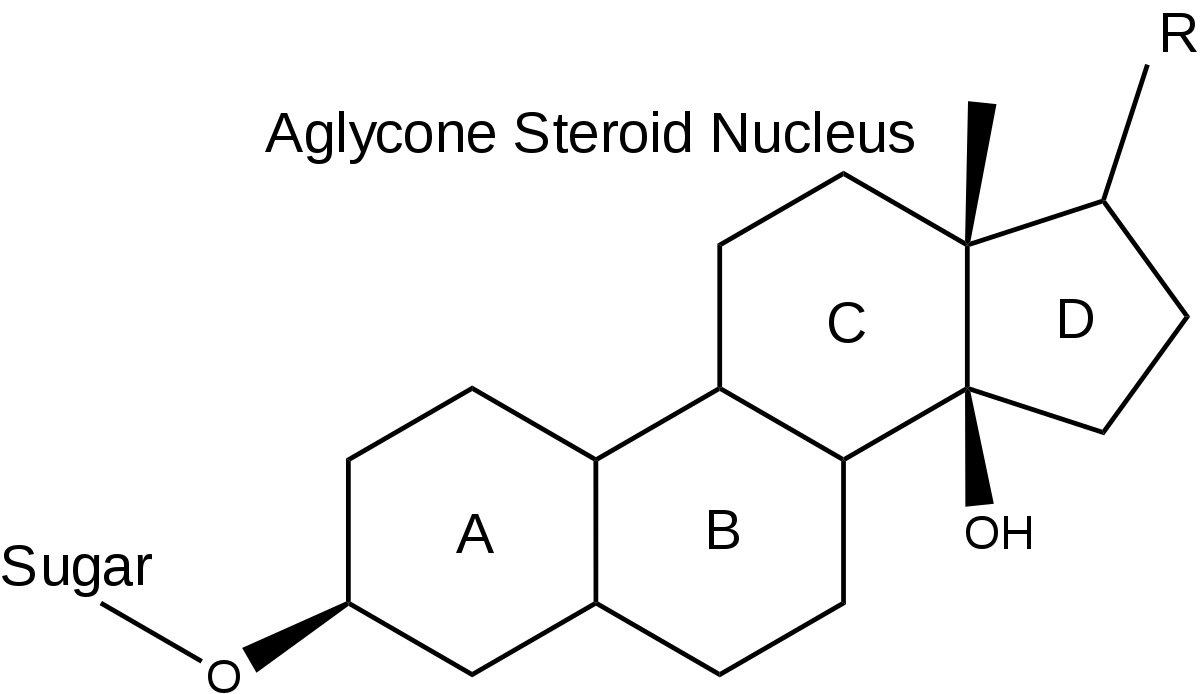
Cardiac glycosides are a group of natural compounds that have been used for centuries to treat various heart conditions. Derived from plants such as foxglove, these compounds have a profound impact on the heart's function, making them a crucial component in the management of heart failure and certain arrhythmias. Understanding the key facts about cardiac glycosides is essential for both healthcare professionals and individuals seeking to comprehend their role in cardiovascular health. In this article, we will delve into six essential facts about cardiac glycosides, shedding light on their mechanism of action, therapeutic uses, potential side effects, and more. By gaining insight into these crucial aspects, readers can develop a deeper understanding of how cardiac glycosides function and their significance in the realm of cardiovascular medicine.
Key Takeaways:
- Cardiac glycosides, derived from plants like the foxglove, strengthen the heart’s pumping ability, but require careful monitoring to avoid harmful side effects and interactions with other medications.
- With a rich historical background, cardiac glycosides have been used for centuries to treat heart conditions, but their narrow therapeutic index demands precise dosing and close patient supervision.
Cardiac Glycosides are Derived from Plants
Cardiac glycosides are a group of compounds that naturally occur in certain plants, including the foxglove plant. These compounds have been used for centuries in traditional medicine for their ability to treat various heart conditions. The use of cardiac glycosides dates back to ancient times, where they were employed to alleviate symptoms of heart failure and irregular heartbeats. The therapeutic properties of cardiac glycosides have been harnessed for their positive inotropic effects, which enhance the contractility of the heart muscle.
Cardiac Glycosides Positively Impact Heart Function
When administered in controlled doses, cardiac glycosides can enhance the contractile force of the heart, leading to improved cardiac output. This mechanism of action makes them valuable in the management of congestive heart failure and certain cardiac arrhythmias. By increasing the strength of each heartbeat, cardiac glycosides help the heart pump blood more efficiently, thereby alleviating symptoms and improving the overall function of the heart.
Cardiac Glycosides Require Caution and Monitoring
The therapeutic use of cardiac glycosides necessitates careful monitoring due to their narrow therapeutic index. This means that the difference between a therapeutic and toxic dose is relatively small, underscoring the importance of precise dosing and close patient supervision. Healthcare providers must exercise caution when prescribing cardiac glycosides and regularly monitor patients to prevent potential toxicity and adverse effects.
Cardiac Glycosides Can Induce Adverse Effects
While beneficial when used appropriately, cardiac glycosides can also lead to adverse effects if not carefully managed. Common side effects include nausea, vomiting, and disturbances in heart rhythm. In cases of overdose or excessive accumulation, severe toxicity can occur, manifesting as life-threatening arrhythmias and other cardiac complications. Therefore, it is crucial for healthcare professionals to educate patients about the signs of toxicity and conduct regular assessments to mitigate potential risks.
Cardiac Glycosides Interact with Other Medications
It is essential to be mindful of potential drug interactions when prescribing cardiac glycosides, as certain medications can potentiate or diminish their effects. For instance, diuretics, which are commonly used in heart failure management, can alter the levels of cardiac glycosides in the body, necessitating dosage adjustments. Healthcare providers must be vigilant in assessing the concomitant use of medications to optimize the therapeutic benefits of cardiac glycosides while minimizing the risk of adverse interactions.
Cardiac Glycosides Have a Rich Historical Significance
The historical significance of cardiac glycosides spans centuries, with their use deeply rooted in traditional medicine and folklore. From the ancient Greeks to indigenous cultures, the therapeutic properties of plants containing cardiac glycosides have been revered and utilized for their heart-strengthening effects. This rich historical backdrop underscores the enduring legacy of cardiac glycosides in the realm of cardiovascular health and highlights their enduring relevance in modern medical practice.
Directed by Oliver Stone, this iconic war film took the world by storm with its raw portrayal of the Vietnam War.
“Platoon” won four Academy Awards.
The film received critical acclaim and went on to win Best Picture, Best Director, Best Film Editing, and Best Sound Mixing at the 59th Academy Awards.
It was partially based on Oliver Stone’s own experiences in Vietnam.
Oliver Stone served in the Vietnam War, and the movie draws from his personal encounters and observations on the battleground.
Conclusion
In conclusion, understanding the key facts about cardiac glycosides is crucial for anyone seeking to comprehend their impact on the human body. These potent medications have been used for centuries to treat various heart conditions, and their mechanism of action involves influencing the heart's contractility. It's important to recognize the potential side effects and drug interactions associated with cardiac glycosides, as well as the significance of therapeutic drug monitoring. By staying informed about these essential facts, healthcare professionals and patients can navigate the use of cardiac glycosides more effectively, ensuring safe and optimal treatment outcomes.
FAQs
What are the main uses of cardiac glycosides?Cardiac glycosides are primarily used to treat heart failure and certain irregular heartbeats (arrhythmias). They help improve the heart's pumping ability and regulate its rhythm, thereby enhancing overall cardiac function.
Are there any dietary restrictions when taking cardiac glycosides?While taking cardiac glycosides, it's advisable to maintain a consistent intake of foods high in potassium, as fluctuations in potassium levels can affect the medication's effectiveness. Patients should consult their healthcare provider for specific dietary recommendations.
Was this page helpful?
Our commitment to delivering trustworthy and engaging content is at the heart of what we do. Each fact on our site is contributed by real users like you, bringing a wealth of diverse insights and information. To ensure the highest standards of accuracy and reliability, our dedicated editors meticulously review each submission. This process guarantees that the facts we share are not only fascinating but also credible. Trust in our commitment to quality and authenticity as you explore and learn with us.
